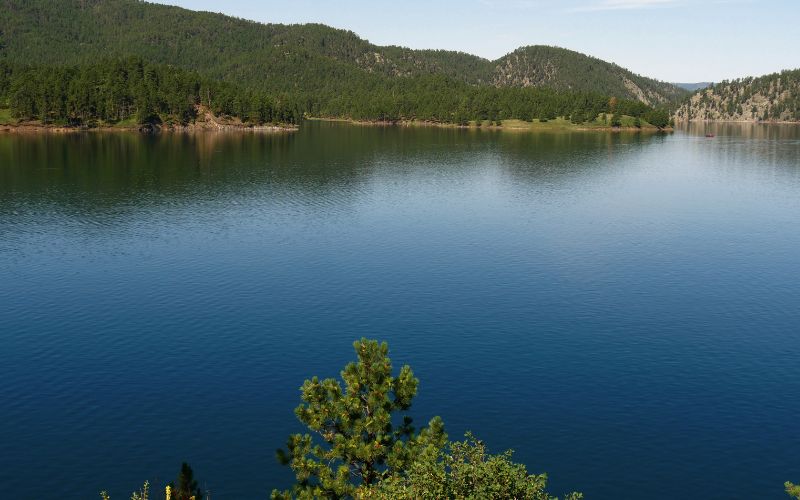
- Details
- By Native News Online Staff
The Oglala Sioux Tribal Council recently passed a resolution to support the proposed mineral withdrawal, which will ban mining around the Pactola Reservoir in the Black Hills, preserving the land and drinking water.
The ban would cover about 32 square miles encompassing the Pactola Reservoir and areas of public land upstream that drain into the reservoir via Rapid Creek.
Organizers at NDN Collective have been working with the Oglala Sioux Tribe to foster support for the proposed mineral withdrawal. Organizers are looking to the other 15 Tribes as having a legal say to stand behind the resolution to protect the sacred land from the destructive mining operations.
The potential impact of the mining areas have cultural significance to Native Americans in South Dakota, a region that figures prominently in Native American history and spirituality.
“Any mining company that tries to desecrate the land or water of the sacred Black Hills will be entering a battle that the Lakota have been waging for over two hundred years,” Mark K. Tilsen, action organizer at NDN Collective, said in a press release. “We are honored that the Oglala Sioux Tribal Council is committed to fighting for the Black Hills. We all love our sacred lands.”
Indigenous people protect 80 percent of the Earth’s biodiversity in the forests, deserts, grasslands, and marine environments in which they have lived for centuries, according to the World Wildlife Fund.
“The Pactola withdrawal is a way for this entire community to protect lands and a critical drinking water source from powerful international mining interests,” Taylor Gunhammer, local organizer at NDN Collective, said in a press release.
The next step is to get the Mineral Withdrawl expanded to the Black Hills. NDN Collective will continure mobilizing local communities to protect the drinking water for Rapid City, Ellsworth Air Force Base, Cheyenne River, and the Pine Ridge reservation.
“Tribes going forward together in this way, united in our message concerning the upholding of our treaty rights and the protection of our water, land and air is of the utmost importance right now. It is absolutely paramount,” said Reno Red Cloud, Director of the OST Water Resource Department, in a press release.
More Stories Like This
Gwich'in Tribal Governments Submit Comments Challenging Fish and Wildlife Service's Inadequate Environmental Review of Arctic Refuge Snow RoadRappahannock Tribe Challenges 9M-Gallon Water Plan
Feds release draft long-term plans for Colorado River management
Apache Leader Walks 60 Miles to Court Hearing That Will Decide Fate of Sacred Oak Flat
Rappahannock Tribe Raises Sovereignty and Environmental Concerns Over Caroline County Water Permit
Help us defend tribal sovereignty.
At Native News Online, our mission is rooted in telling the stories that strengthen sovereignty and uplift Indigenous voices — not just at year’s end, but every single day.
Because of your generosity last year, we were able to keep our reporters on the ground in tribal communities, at national gatherings and in the halls of Congress — covering the issues that matter most to Indian Country: sovereignty, culture, education, health and economic opportunity.
That support sustained us through a tough year in 2025. Now, as we look to the year ahead, we need your help right now to ensure warrior journalism remains strong — reporting that defends tribal sovereignty, amplifies Native truth, and holds power accountable.
 The stakes couldn't be higher. Your support keeps Native voices heard, Native stories told and Native sovereignty defended.
The stakes couldn't be higher. Your support keeps Native voices heard, Native stories told and Native sovereignty defended.
Stand with Warrior Journalism today.
Levi Rickert (Potawatomi), Editor & Publisher


